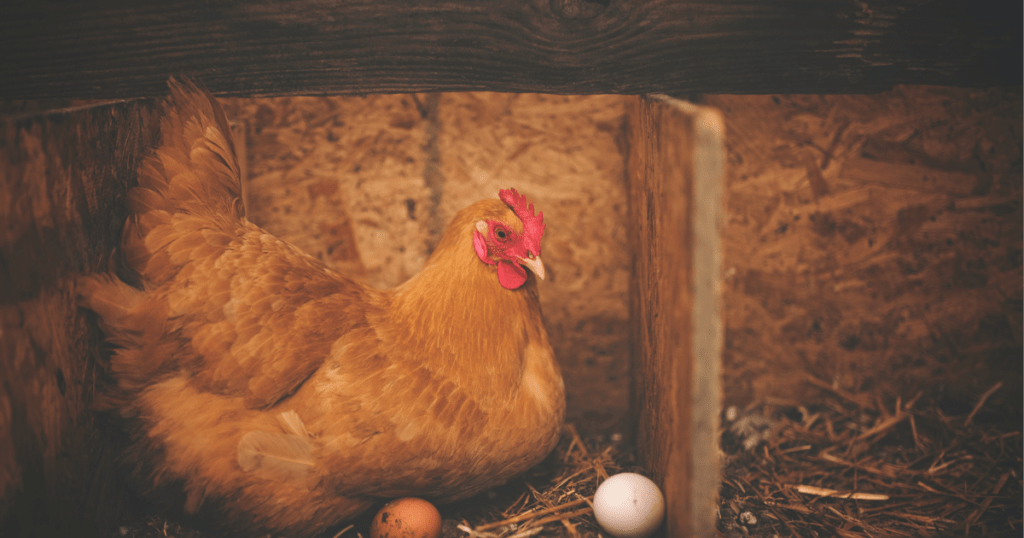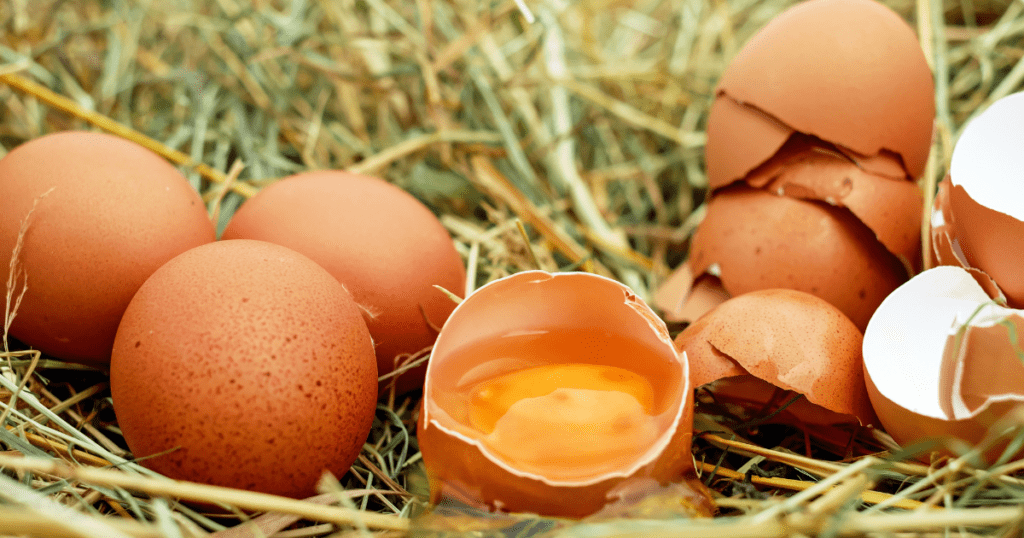Did you know that chickens are related to junglefowl and dinosaurs? No, humans didn’t manage to domesticate the T-Rex. A letdown, isn’t it? But chicken is related to these extinct species! The domesticated chicken is said to be a subspecies of the red junglefowl.
More surprisingly, an evolutionary link between T-Rex and the domesticated chicken was found after comparing the chemical structure of preserved proteins present in T-Rex’s leg.
Chickens remain to be the most artificially manipulated animals by humans. Therefore, humans know chickens’ morphology, anatomy, way of life, and food probably than the chickens do themselves. Humans have rather mastered the methods of their breeding, reproduction, and selection.
Increased understanding of health issues associated with red meat has created more room for chicken consumption. Today, poultry farming is being done throughout the world, and chicken and eggs are an essential part of meals.
Can you see how vital chickens are? Are you interested in knowing more about them, specifically their history? If so, read on because this article takes a closer look at their history, species, health benefits of eggs and meat, and more. Are you all set?
History of chicken
The history of chickens is a bit of a puzzle. Researchers agree that they were first domesticated about 8000 years ago. However, there are at least two partly unresolved controversies related to the origin of chickens.
The first controversy points towards the possible early presence of domesticated chickens in China. The second one is about whether pre-Columbian chickens exist in the Americas or not.
At the beginning of the 21st century, genetic research revealed many sources of chicken domestication. The oldest surviving archeological evidence from China dates to 5400 BCE and has been found at the following sites:
1. Cishan: The evidence has been found in the province of Hebei (5300 BCE)
2. Beixin: Signs of chicken domestication have been found in the province of Shandong (5000 BCE)
3. Xian: The evidence dates to 4300 BCE and has been spotted in the province of Shanxi
Species of chicken
The history of chicken is related Four species of primitive hens are still present in the wild and are found in Asia’s different geographical areas. The four species are as follows:
1. Golden rooster
2. Sonnerat rooster
3. Lafayette rooster
4. Java green rooster
It has been believed for a long time that only the Bankiva rooster, a subspecies of golden roosters, was the source of all domestic hens.
However, the emergence of archeological research’s results in 2008 revealed that part of the genetic heritage of domestic hens comes from the Sonnerat rooster and probably other species or subspecies which are now extinct.
Health benefits of chicken
Chicken is a widely respected choice for a wide variety of balanced diets. Compared to other meats, it is Paleo-approved, keto-friendly, and fatty.
Chicken is loaded in proteins and has a low-calorie count. Similarly, it has low carbohydrates and offers essential nutrients such as vitamins B and selenium.
Chicken is also described as a high-quality protein source as it contains all nine amino acids that make it a complete protein food source. Moreover, it is easily digestible as compared to other forms of meat.
Understanding Eggs And Cholesterol:
Eggs are nutritious
You might have heard it before, but it’s more than essential to know and remember that Eggs are packed with nutrients. And you should include them in your diet. Egg yolk and egg white provide many essential nutrients. Egg yolk contains vitamins A, D, E, B12, riboflavin, selenium, and folic acid.
Egg white is a good source of excellent quality protein. With 5 g of fat per egg and no trans-fat, eggs can be eaten while respecting the recommendations concerning fat’s daily consumption.
One egg contains about 186 mg of cholesterol, which is mainly found in the yolk. Like most foods, eggs should be eaten in moderation.
Eggs can be a healthy choice if you limit your intake of other foods containing saturated and trans fats.
A healthy person with normal cholesterol, no history of diabetes or heart disease can eat an average of one whole egg a day. This does not increase the risk of cardiovascular disease.
Brown or white eggs have the same taste and the same nutritional values
The color of the shell is determined only by the breed of the hen. The white hen lays white eggs, and the brown hen lays brown eggs.
There is no nutritional difference between white and brown eggs. Nevertheless, the better a hen’s diet, the more nutrition its eggs will have.
How to make chicken farming easier?
Have you ever wanted to raise chickens, but the thought of housing, feeding, and cleaning them seems too much? Who’d run after the chickens when they decide they’ve had enough of the den? Well, a game of chase can be a good activity to add to your routine! But seriously. chicken farming requires discipline, and with proper preparation, you are good to go.
Let us look at how chicken farming can be made easier:
1. The morning and evening routine of chickens
You have to open the coop during the morning hours to ensure that the food and water are in place. Moreover, you can have a little chicken talk with the chickens!
For your ease, fill up a plastic jar with the feed before sleeping at night and empty it in the coop each morning.
The evening routine is pretty similar to the morning routine, except that you can collect some eggs as your evening treat.
2. Opening and closing the coop
If you do not want the predators to have your chickens for a feast, make sure you open the coop in the morning and close it at night.
If you are looking to give this job to someone else, you can try an automatic pop door that opens and shuts at the time you preset.
3. Feeding the Hens
On average, a hen requires about one cup of food per day. Depending on the number of hens you have, you can buy a large feeder, which will last for a couple of days.
If you have trouble bending and lifting, you can make tube feeders using PVC pipes, which take up little space.
Another essential task is to clear the floor at night as any feed on the ground will welcome pests.
4. Egg collection
Egg collection is the fun part of chicken farming for many. If you are not one of them, you will have to become one (oops).
Uncollected eggs can pile up, and that does not sound nice. So, you should do an egg collection tour at least once a day. It would be even better to do it twice: when you open the coop in the morning and before closing it at night.
Now, how do you take care of eggs to avoid breaking them? Make use of aprons, tubs, baskets, etc., and make your life easier.
5. Chicken drinkers
Fresh and clean water’s availability is essential for chickens. Dehydration in hens may lead to an inability to lay eggs for some time.
A hen typically drinks a pint of water per day, and the amount increases in hot weather. Unfortunately, there will be some spillage as the chickens might bump into the hanging drinkers now and then.
6. Chicken waste
Chicken droppings are a lot in amount. So, how can cleaning be made easier? Like most people, you can use a droppings board, anything from wood, mesh, or plastic trays.
You need to collect the droppings using the tray and dump them as frequently as you need to.
7. Chicken bedding
You can use straws, shredded paper, shavings, etc., to make the beddings for chickens. While straw beds are the most economical, they are messy to clean up.
As far as shredded paper is concerned, it is environmentally friendly, but it sticks to the eggs and is not very absorbent. Hence, you can go for pine shavings, which are easy to clean and cost-effective as well.
8. Exercise is vital for chickens
You are not the only one who needs to exercise to live a healthy life; chickens need it too. You can place chicken swings, perches, old logs to peck at, etc., to keep the chickens busy and active.
Doing so will significantly benefit hens who will get to stretch a little.
9. Interact with the chickens
Ensure to maintain regular contact with the chickens. You will be surprised to see that we can create a real connection with them! Doing so will not take you more than a few minutes per day, and these few minutes will be filled with happiness.
Note: Before buying chickens, first check with the town hall or the subdivision because sometimes, the breeding of chickens is regulated in some urban areas. Rest assured, this is rare, and you can have a few chickens without compromising good neighborly relations!
How are chickens raised at home?
In recent years, house chicken farming has been closely controlled at commercial chicken farms. Conventional domestic systems consist of a sloped floor of three to eight birds, and these systems are mostly used as solid metal or mesh poultry cages.
An overhead device provides water in a trough on the front of the enclosure. Based on the room’s size, the systems can be stacked or spread over the concrete.
Conventional systems work well for broiler development in which the main concern is providing adequate feed for growth.
The eggs are deposited in a sheet enclosure. If you breed chickens, you will need parent stock cages to allow pairing and minimize egg breakage. Rearing cages, which would enable chick growth, also include reproduction systems.
There are countless options for those who want to raise chickens on domestic farms. Some add perches, lights, windows, and even green roofs of dry plants that keep cool in summer.
Moreover, it is easy to restructure an existing chicken house outbuilding, and decorating elements can be used if they are in your backyard (that saves your money).
The sleep pattern of chickens
Chickens can sleep while sitting or stretch out to sleep with legs or necks spread out on the floor.
Regardless of how your chickens choose to sleep, if you have built the coop to meet their preferences, they would be able to sleep comfortably and wake up as soon as there is light outside.
Sometimes, they may wake up during the night if they get disturbed (people with babies would understand). Do not worry, as it does not happen frequently.
What do chickens eat?
Do you have chickens, or do you want to set up your domestic breeding? Are you unsure about how to optimally feed your future feathered housemates? Do not panic! This is precisely the subject that we are addressing here for you.
Although hens are omnivorous animals (they also eat worms, insects, vegetables, meat), an adapted and specific diet will allow them to be healthier. This will also enable them to produce eggs of better quality and in a greater quantity.
You can select fruits, vegetables, and grains that will fulfill the nutritional needs of the chickens. Some of these foods include cooked beans, leafy greens, corn, non-sugary cereals and grains, berries, apples, etc.
Having a chicken coop in your garden: Advantages
1. Raising chickens is ecological
Having a chicken coop means being able to benefit from fresh eggs. Moreover, raising chickens at home is good for the planet since it is ecological.
Unlike industrial chicken coops, you will be able to get your hands on tastier and better quality eggs all year long without having to go to the supermarket.
An added benefit of having chickens at home is that they also devour household waste, insects, grasses, stones, and all small organic debris. This will allow you to reduce your annual household waste to at least half the actual amount.
If you have grown vegetables in your garden, chickens will protect them by eating the smallest insects. See, chickens are a great help at home!
2. It is economical to raise chickens
Did you know that an individual consumes around 200 eggs per year? This amount increases to 1000 in the case of a family of five people.
Doesn’t this make installing a chicken coop in your garden and having eggs from your hens sound interesting? Eating the eggs of the hens raised at your home will be healthier as well as economical!
It should be noted here that a laying hen aged between 5 and 7 years old makes at least one egg a day. This explains why the price difference can be huge if you buy your eggs at the supermarket.
Besides, you could get a cheap chicken coop where you could shelter your hens. The price varies according to the model adapted to your needs and your land.
On average, it will cost a hundred euros, but it can go up to 1500 euros depending on the quality, dimensions, and needs.
3. Raising chickens at home provide better nutrition and food education
You can eat better by reducing industrialized foods since eggs’ quality will be better when they come from your hens.
Additionally, raising chickens at home is also a way to educate your children by raising awareness about what they consume daily.
Children will also discover the animals in your chicken coop and learn about how chickens are produced. Thus, they will be able to benefit from a healthy and balanced diet from an early age.
Can I eat chicken daily?
When it comes to non-vegetarian food, people often think that eating chicken daily is not healthy. This opinion is not entirely true!
According to health experts, it is necessary to understand how the meat is cooked and the type of meat you are eating. If we talk about white meat, the variations loaded with spices, cream, and butter are not healthy for daily consumption.
The ideal way to get the maximum benefits of chicken is to either grill it or roast it. The tender meat, which is full of nutrients, is also known as the powerhouse of energy. So, make it a part of your balanced diet!
The virtues of chicken soup
When the cold becomes unbearable, and you want coziness, treat yourself with a bowl of hot soup! However, chicken soup can provide you with more than just a soothing effect.
According to the results of a study carried out in the 1970s, soup’s heat speeds up mucus’ liquefaction more effectively than hot water. Chicken soup can also relieve cold symptoms.
Additionally, it promotes hydration and elimination of secretions while reducing inflammation. Note that these studies were carried out with soup prepared from a traditional recipe containing real chicken.
The bottom line
Domestication of chicken dates to at least 2000 B.C. Poultry has been providing companionship to humans for ages by serving as a source of meat and eggs.
Chicken farming is becoming widespread with time, and it can be made easier with dedication and discipline. Consuming meat and eggs obtained from the chickens raised at home are healthier than buying them from a supermarket.
Moreover, chicken is packed with nutrients and proteins, and eggs provide us with essential vitamins. Therefore, making them a part of your balanced diet will help you live a healthier life.
Happy and healthy living!











Leave A Comment